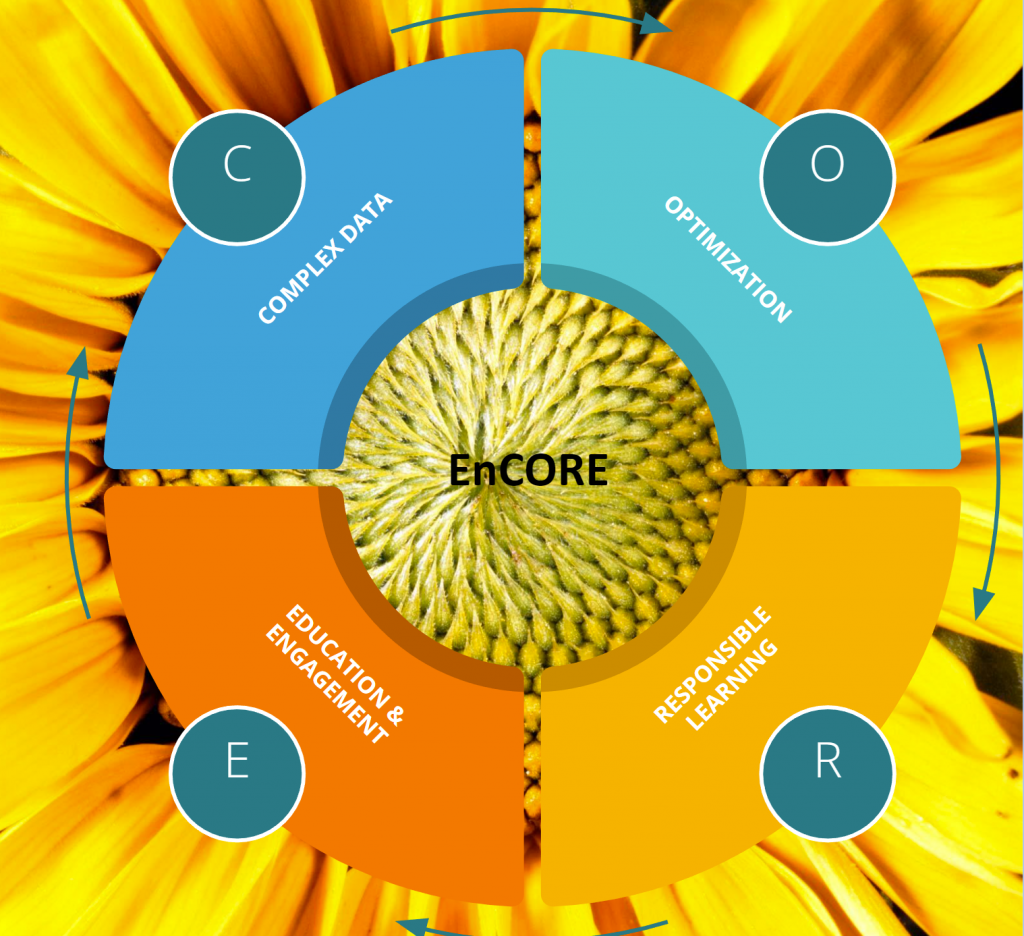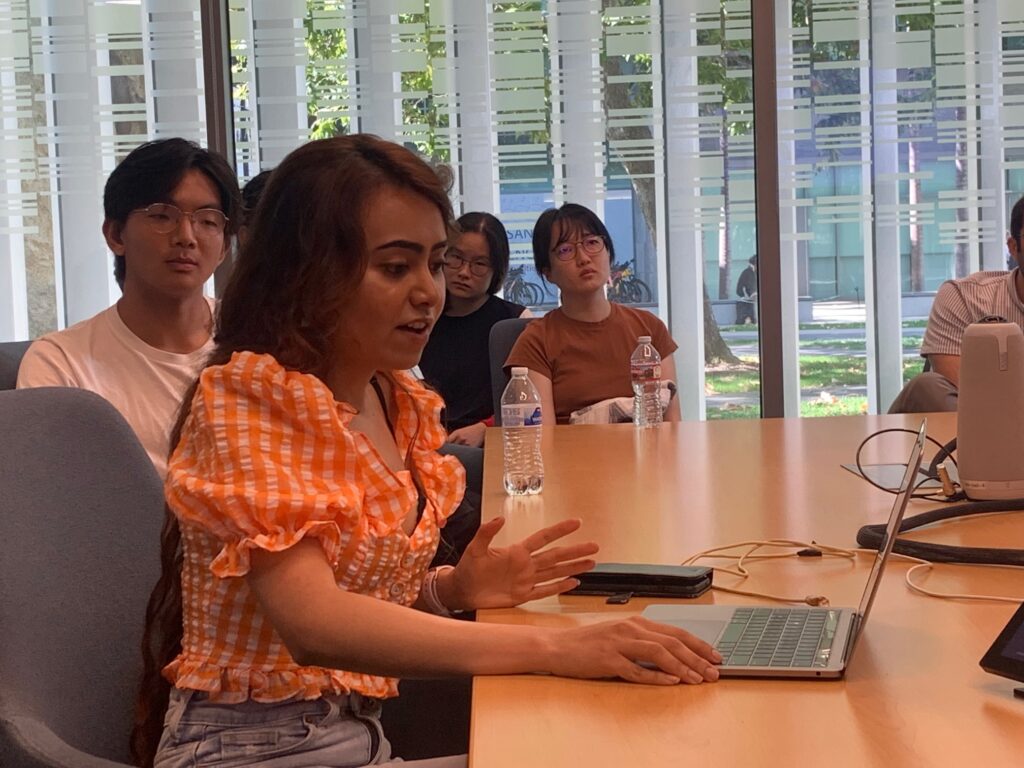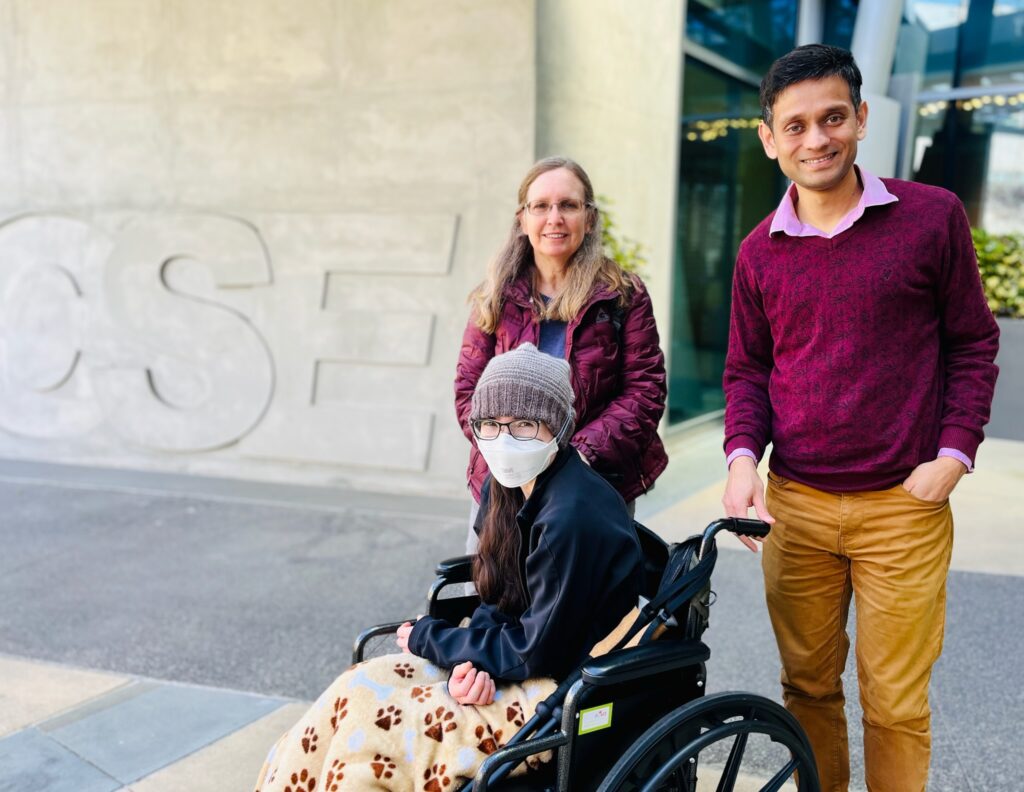EnCORE
The Institute for Emerging CORE Methods in Data Science
Applications are now open for EnCORE Visitors Program
NEWS
Raghu Meka's work featured in Quanta as Biggest Breakthroughs in Math
Rising Stars in Data Science 2023
Empowering Young Minds: Robotic Arts and Craft Workshop for Elementary School Kids
EnCORE: Call for Extended Research Visits & Workshops
TCS for All scholarships to attend FOCS and STOC are available for minority students
Surprise Computer Science Proof Stuns Mathematicians
Understanding Self Distillation in the Presence of Label Noise
U.S. census data vulnerable to attack without enhanced privacy measures
A Mathematical Breakthrough by the EnCORE Faculty Raghu Meka
Expand Foundations of Data Science
New $10M NSF-Funded Institute Will Get to the CORE of Data Science
UCLA Part of New $10M NSF Data Science Research Center, EnCORE
$10M NSF-Funded Institute Will Get to the CORE of Data Science
NSF Awards
Data Science Theory
Data Science Theory
Computation+Compression
Computation+Compression
Masters of Data Science Online
Masters of Data Science Online
New Book Announcement:
General Chair of ICML
Chaudhuri will be the General Chair of ICML 2022.
First cohort of Ph.D. students in Data Science
HDSI
Congratulations to Professor Yusu Wang
General Chair of STOC 2023
Saha will be the General Chair of STOC 2023.
I am Data Science
Mazumdar featured in I am Data Science series.
Learn MoreEnCORE: Call for Extended Research Visits & Workshops
Old Questions and New Directions in Clustering
Follow us on Twitter
Subscribe to our YouTube Channel
EnCORE: The institute for Emerging CORE Methods in Data Science
The Institute for Emerging CORE Methods in Data Science, or EnCORE, is led by the
University of California San Diego in collaboration with the University of California, Los
Angeles; University of Pennsylvania; and The University of Texas at Austin. EnCORE brings
together scientists from multiple disciplines such as statistics, mathematics, electrical
engineering, theoretical computer science, machine learning and health science, among
others.
EnCORE’s team will focus on the four CORE pillars of data science: C for complexities of
data, O for optimization, R for responsible learning, and E for education and engagement.
The institute is fostering a plan for outreach and broadening participation by engaging
students of diverse backgrounds at all levels, from K-12 to postdocs and junior faculty. The
project aims to reach a wide demography of students by offering collaborative courses across
its partner universities and a flexible co-mentorship plan for multidisciplinary research.
To bring theoretical development into practice, EnCORE will work with industry partners
and domain scientists and will forge strong connections with other NSF Harnessing the Data
Revolution Institutes across the nation.
NSF’s Harnessing the Data Revolution (HDR) Big Idea is a national scale activity to enable new modes of data-driven discovery that will allow fundamental questions to be asked and answered at the frontiers of science and engineering. HDR TRIPODS aims to bring together the electrical engineering, mathematics, statistics, and theoretical computer science communities together through integrated research and training activities.









